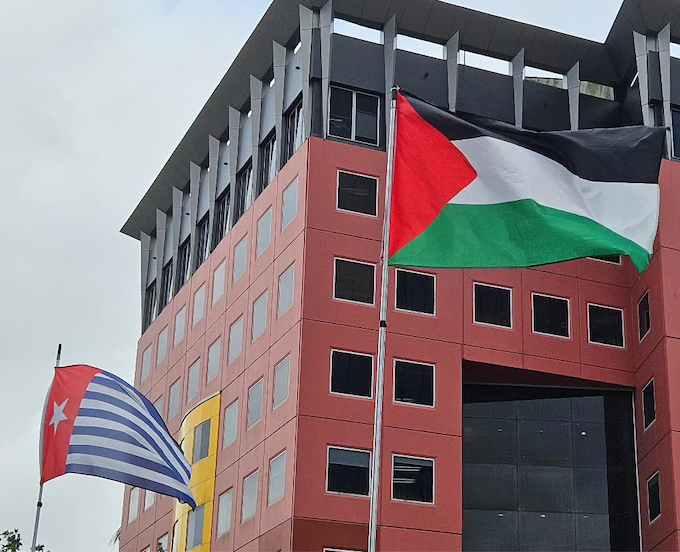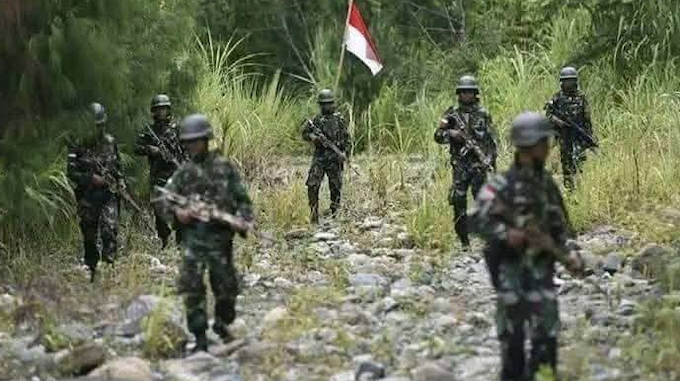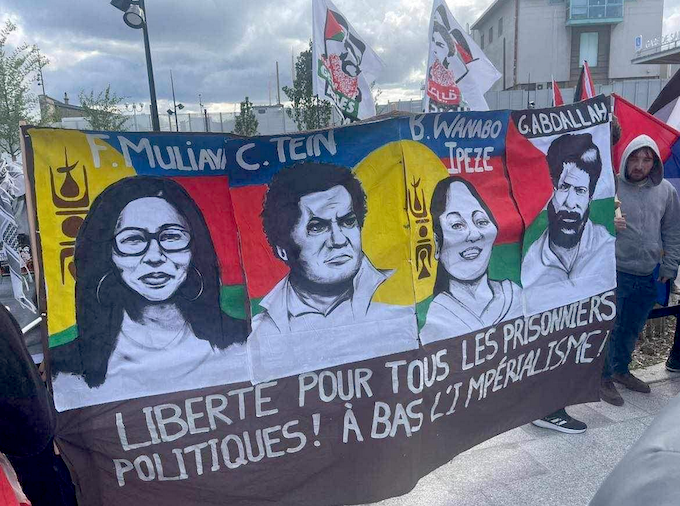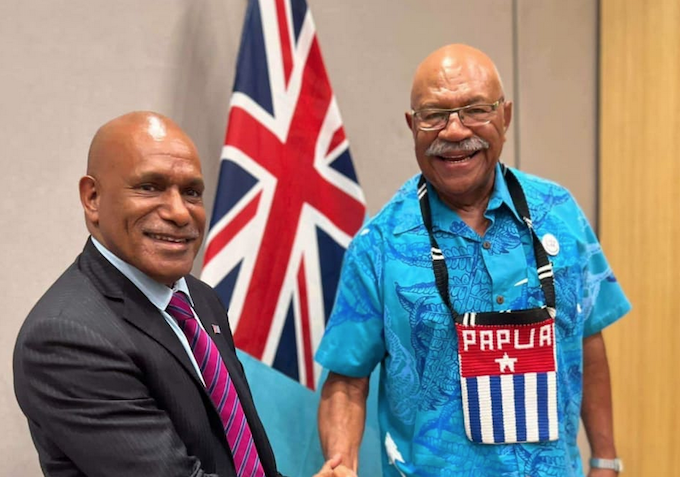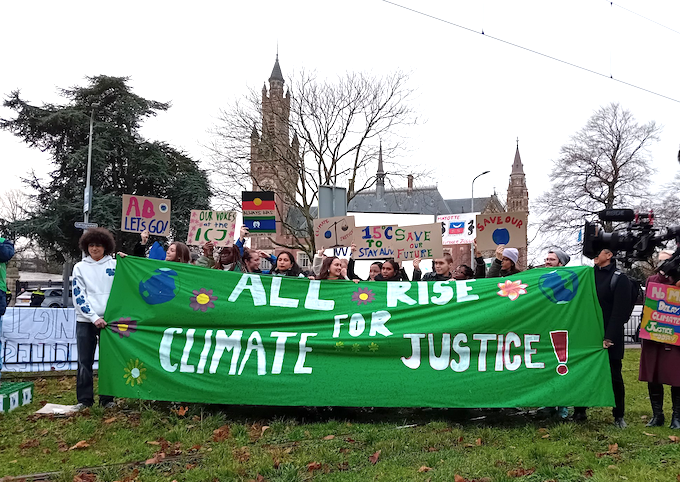While teaching at Muhlenberg College, Maura Finkelstein made no secret of her support for Palestinian liberation. Even before receiving tenure, Finkelstein taught courses on Palestine and made her views publicly known. Then, in May of 2024, she was unceremoniously fired for sharing pro-Palestine content on her personal social media account. Finkelstein joins The Marc Steiner Show to discuss her journey as an anti-Zionist Jewish American, and why she’s willing to stand by her principles despite the consequences.
Studio Production: Cameron Granadino
Post-Production: Alina Nehlich
Transcript
Marc Steiner: Welcome to The Marc Steiner Show here on The Real News. I’m Marc Steiner. Great to have you all with us.
In January of this year, Dr. Maura Finkelstein, who is a tenured professor at Muhlenberg College, temporarily posted on Instagram a statement from a Palestinian American poet. Let me read you the statement: “Do not cower to Zionists. Shame them. Do not welcome them into your space. Do not make them feel comfortable. Why should those genocide-loving fascists be treated any different than any other flat-out racist? Don’t normalize Zionism. Don’t normalize Zionists taking up space.”
And when that was posted, she began to be harassed by her college, going after her for all kinds of reasons. And she ended up being terminated, a tenured professor from Muhlenberg College, and now works at American Anthropologist. It’s really almost unheard of for a professor to be shown the door, especially a tenured professor, because they disagreed with some policy the government supports.
She joins us today. And welcome, Maura. Good to have you with us.
Maura Finkelstein: Thank you so much for having me.
Marc Steiner: So let me just, I’d like to take a step backwards for a moment in time, in your time. And I’m very curious about your own sojourn as a Jewish woman, as a professor, and how you came to this position, this understanding of what’s happening in Israel-Palestine and the oppression of Palestinians, and why that’s become so central to the work you do.
Maura Finkelstein: Yeah, thanks for that question. I’ve been asked that question a lot lately, not surprisingly. And up until today, a lot of the ways that I have answered that is through the lens of how did you not get indoctrinated into Zionism or how did you escape being a Zionist, as though that’s the expected political position of Jews in America, because we have that narrative.
And now, more and more, I’m thinking, how does anyone buy into Zionism? It should be a surprising commitment to an ideology that is, essentially, a settler colonial ideology. And it should be, in my mind, more common for people to not buy into that. But I understand the context in which we enter the story.
And I think for me, I grew up in a Jewish community in Washington, DC. I went to Hebrew school, I got bat mitzvahed. And I think that, from an early age, I was one of those kids who wouldn’t stand for the Pledge of Allegiance in elementary school.
Marc Steiner: You too?
Maura Finkelstein: This goes [laughs] —
Marc Steiner: Me too [laughs].
Maura Finkelstein: Yeah, you as well?
Marc Steiner: Yes [laughs].
Maura Finkelstein: Yeah, I didn’t like nationalism, and I didn’t like the idea of pledging anything to anything. And so, Zionism was given to me as a child as a double nationalism: You’re committed to the United States, you’re committed to Israel. To me, as someone who, even as a child was wary of nationalism and not interested in that, it didn’t make sense for me to also feel some kind of national affinity to a country across the world that I had never been to and didn’t have any connection to.
And I think, for me, as an anti-Zionist, it was the opportunity in high school to actually read about Palestine from the perspective of Palestinians for the first time in my life when I was a senior in high school. I came across a copy of Edward Said’s The Question of Palestine. I don’t think I understood most of what I was reading, but I did read it. Palestinians had never been part of the story before to me, and all of a sudden I was reading a very different history of what I had been given growing up. And that made a lot more sense to me than what I was learning in Hebrew school and what was being circulated throughout my Jewish community.
Marc Steiner: So I don’t want to belabor this. I want to get to where we are now and where you are now. But what you just said, I’m very curious about how did people around you respond to that when you were young and taking this position, which is not common for younger people to take?
Maura Finkelstein: I also was lucky in the sense that my parents were not Zionists. I think we’re pretty much on the same page now — It’s kind of hard not to be after 14 months of genocide being live-streamed to us every day.
But for most of my life, my parents weren’t necessarily politically aligned with me, but they weren’t Zionists and they didn’t feel a connection to Israel. And my father, who was a lawyer — He’s retired now — His parenting strategy, which was applied to everything from when I became a vegetarian and vegan as a kid to when I started reading about Palestine to when I started going to protest at Lockheed Martin when I was in high school, his approach was, argue with me. Make your case. Make your point. And so I was raised to go and do my research and come to the table, even as a child, with an argument.
And I think that that was a really incredible skill for me to have. Because especially in the ’90s and early 2000s, it wasn’t a common position for a Jewish person to be an anti-Zionist — And I will say I didn’t come into the term anti-Zionist until the early 2000s when I was a master’s student at Columbia University and witnessing a lot of the same repression there that we’re seeing now in which a Palestinian professor, Joseph Massad, was the victim of a harassment and targeting campaign to get him fired, and I was radicalized.
Marc Steiner: And where was that?
Maura Finkelstein: As an anti-Zionist then. That was at Columbia University in 2004. Yeah, 2004, 2005. And that’s where I encountered the term anti-Zionist and felt like it really fit. But I think before that, I just felt quite alienated from my Jewish community and really couldn’t see a space for myself in that community with the politics that I had. So it was hard, but I do think that I was, at least in my family of origin, I was encouraged to read and to think and to argue, as is a Jewish practice [laughs].
Marc Steiner: Yes, absolutely. Absolutely. Absolutely. So I was reading some of the articles you wrote. You talk about your journey to Israel and tell the story of Mahmoud and others that deeply affected you. Could you share that a bit?
Maura Finkelstein: Yeah, and I will say, when I talk about that trip, I say that I went to Palestine because I went to Palestine.
Marc Steiner: Yes, yes. Yes, got you.
Maura Finkelstein: I had often felt ambivalent about whether I wanted to go to Palestine, especially because so many of my Palestinian friends in the United States did not have the opportunity or the option to go to Palestine, to the villages where their family was displaced from. And I think for a long time as a young person, it felt like an ethical commitment to not go to Palestine until Palestinians could return.
But as I progressed in my career as a teacher and was teaching about Palestine, I felt that it was hard for me as an anthropologist — So much about being an anthropologist, being in a place, and sort of thinking from the perspective of that place. It became harder and harder for me to teach about Palestine without going to Palestine. And so I was lucky enough to go the summer of, I think, 2018. I’m now forgetting dates.
Marc Steiner: It’s OK [laughs].
Maura Finkelstein: I think it was 2018. And every day we were staying in occupied East Jerusalem, the Palestinian neighborhood of Jerusalem that’s increasingly being taken over by settlers. And we were moving back and forth into the occupied West Bank and going to various cities and towns to visit historical places, but also to visit Palestinian universities and meet Palestinian faculty members to make connections, share each other’s work. It helped me learn about the scholarship that was being produced in Palestine that I could then teach my students.
And just the opportunity to experience checkpoints. The opportunity to experience settler violence, to see Hebron and see the violence of the area, the way in which Palestinians were trying to protect themselves from the violence of the Israeli military and of encroaching settlers. I think it gave me a grounding that has been really life-changing, and just thinking about how I knew from reading Palestinian writers the reality of occupation. And this allowed me, as a Jewish American, to be as close to that as possible and see the violence of everyday life for Palestinians living under Israeli occupation.
Marc Steiner: One of the things I thought about, but I really, it struck me as I was reading what you wrote about that journey. I’ll just read this for people listening to us. You wrote that “Palestinians in East Jerusalem like Mahmoud are not citizens, but immigrants with permanent resident status. And this status is contingent upon living in Jerusalem.
“Mahmoud’s wife lives in the West Bank. She cannot come to Jerusalem. And if Mahmoud leaves to live with her, he’ll not be able to return to the city where he grew up, the city where his family lives. Mahmoud and his wife have different identity cards. His allows him to live in East Jerusalem. Hers restricts her to living in the West Bank. And according to the Israeli State, Mahmoud is part of a mixed marriage. He and his wife live 15 miles from each other. They’re not allowed to live together unless he forfeits his Jerusalem residence.”
And when I read that passage last night, it reminded me both of legal Apartheid in South Africa, which I’ve covered, and what happened to enslaved Black people in this country.
Maura Finkelstein: Absolutely.
Marc Steiner: Even when they jumped the broom they were forced to live apart, could be sold. I thought about this before, but something about what you wrote about that really struck me deeply in terms of the significance in what it really means, and that’s A. And the B part was… Well, I’ll start with the A. I’ll get to the B after we deal with the A. It really just struck me that way reading what you wrote.
Maura Finkelstein: Yeah. I think destroying families, breaking up families is always a tool of both genocide and also structural violence. So I think the comparisons to enslavement in the United States and Apartheid South Africa are good as ways for us to… Obviously there are different cases and each one is incomparable in its own way. But I think it’s really important that we can now look back at South African Apartheid and we can look back on the political economy of slavery in the United States and without a doubt say these were monstrous ways of controlling and doing so many different levels of violence to a group of people. There’s no question about that.
And the way in which these forms of control in Palestine are normalized in the name of Israeli security makes it so that Palestinians are constantly dehumanized. The Israeli line, we have to treat them this way because they are a danger to us, they’re a threat to us, et cetera, et cetera. And living in that kind of violent infrastructure and control is unbearable. I mean, people find a way. People always find a way. But it’s horrifying.
Marc Steiner: So I’m curious, one of the things I was wrestling with is, in reading all your articles, and I at least get to know you intellectually and what you think and your activism just by reading everything you’ve written. One of the questions that always pops up is, how do the oppressed become the oppressor?
And this is a real, I mean, it’s just so vivid to me. If you grew up Jewish, at least in my generation, in my house, you grew up with stories of my grandmother, in Yiddish called Bubbe, my grandmother, who the Cossacks, when they attacked her ghetto, she ran down the street holding her baby sister’s hand, and a Cossack leaned over the saddle, chopped off her baby sister’s head while she was holding her hand. So we grew up with these stories about what happened to us. How did that process happen, do you think, where the people who have lived through so much oppression allow themselves to become the oppressor?
Maura Finkelstein: It’s such a good and hard question, and I’ve been having conversations with people lately in which some conclusions have been there’s no way to understand this without thinking about it psychoanalytically, which is not something that I have the skills to do [Steiner laughs].
But I do think that there’s something deep in the psyche of a particular kind of Jewish Zionist Israeli, and I mean those three different ways of being together, identity, where I think identity comes with a certain form of ambivalence because it’s really desirable to understand oneself through who we are, being part of a group. I am Jewish, I’m a woman, I’m American, I’m queer, I’m an anti-Zionist. All of these things are ways that I might talk about myself. And each of those categories comes with an ambivalence of not quite being exactly what it is that I want it to be for me. And I think that struggle with ambivalence is generative and important and also deeply uncomfortable.
And I think about Israeli identity as being invested both in being the victim and being the strong one. And how do you resolve that where there’s a commitment? And you see this in American Jews as well where our origin story, regardless of the fact that my family has been here since the turn of the 20th century, our origin story is always the Holocaust these days.
Marc Steiner: Yes, right.
Maura Finkelstein: Right? And so what does it mean to have this — And Israel does of course as well — To have the Holocaust as an origin story? We come from genocide. We are an oppressed people. We don’t have a homeland, et cetera, et cetera. We need this place to feel safe.
And at the same time, grappling with that identity of victimhood through this militarized strongman identity. There’s this tension there that doesn’t really make any sense. It can do nothing but create violence. And I think that there’s something so devastating about an unwillingness to reckon with the fact that Jewish people, historically, throughout time, have experienced a lot of oppression, as have most groups. It’s not unique. It’s not special in a particular kind of way.
I think the way that the Holocaust becomes such an origin story in terms of the most extreme form of genocide, the most extreme form of violence is because it happened in Europe to people who are now in many, many spaces seen as white or proximate to white. If we’re thinking about origin stories through settler colonial violence, genocide, enslavement, et cetera, et cetera, we can think about a history of genocide all over the world. It’s actually quite a common story, but it’s usually not happening to white-adjacent people in Europe.
And I think that that commitment to this exceptionalism in which the Holocaust is this origin story, and never really reckoning with what that means, creates the need to be both the victim and the oppressor at the same time. And I think until that’s collapsed, until that’s challenged, then this violence is going to continue. And I also think that as soon as Israelis actually reckon with the ambivalence of that identity, then Israel itself — And I hope that Israel as a nation state this soon happens — Israel will collapse. What is sustaining it other than this tension between victim and perpetrator?
Marc Steiner: So in the little bit of time you have left, two things I’m very curious about. A is, as someone who has been really delving into this deeply, both intellectually and as an activist and went there… It’s almost a ridiculous question [laughs]. But how do you see it resolved? Having spent many years in dialogue and working together with Palestinians and Israelis and Jews and Muslims and Christians, exploring ways to come together as opposed to killing each other and oppressing Palestinians, I don’t have the answer, I’m not sure what it is. But I’m very curious, given what you’ve been doing in your work and life, how are you see it changing? What does the struggle look like to make a change?
Maura Finkelstein: Yeah, that’s a great question. It’s such a hard question. And I will say that I have a lot of opinions about a lot of things, and a lot of them are informed.
Marc Steiner: Really [laughs]?
Maura Finkelstein: I know it’s shocking. But I do think that the question of the future of Palestine is entirely up to Palestinians, both those who are still there and those who dream of the right to return. But I do think that what we are watching right now is the absolute collapse of Israel and Zionism, and that is going to be a very drawn out, even more violent than we’ve already seen, process.
And when I imagine a future that feels more just, that feels rooted in liberation, I don’t imagine it through the nation state. I think the nation state is one of the most violent and devastating features of modernity, the nation state and capitalism. I would like to abolish them both [Steiner laughs], so I don’t imagine a utopian future with national borders. But I do think that Israel cannot continue to exist if there will be any just future for the region.
And the problem with being a genocidal state is that there’s only the projection of genocide. So I think the way that I hear Zionists talk about the future is, we can’t integrate this region because they will do to us what we have done to them, which is a genocidal ideology, and it’s not at all reflective of what most Palestinians are hoping to have happen in the future.
But I do think that the only possible movement in the direction of liberation for everyone and freedom for everyone is the complete dismantling of Israel and the creation of a free and democratic country from the river to the sea. And that would be giving rights to everyone.
And I think that most people want to live peacefully and see their children grow up and have opportunities and have access to food and water and safety and freedom and all of these things. And none of that is possible for anyone in the region unless Israel ceases to exist. And I don’t mean Israelis, I don’t mean any people ceasing to exist. I mean the nation state of Israel. There’s no peace. There’s no liberation. There’s no freedom in the region as long as Israel continues to exist. Israel is making that quite clear. I mean, this genocide in Gaza has spread to Lebanon and Syria, the expansionism of the Israeli nation state is a danger to the world. It’s a threat to the world.
Marc Steiner: It is a threat to the world. Absolutely.
Maura Finkelstein: Yeah.
Marc Steiner: I think that what you’re describing, before we conclude, I have a poster that I’ve had since 1968 given to me by Palestinian friends. And it’s a map of all of Palestine, the whole Holy Land. And it reads across the top, “One state, two people, three faiths.” And that has kind of been, at least for me personally, politically been my mantra for all those years. That there’s got to be a way through the wilderness to find that.
Maura Finkelstein: And I think that that’s the only next step. It’s not the last step, but it’s the only next step that will allow for the most amount of people to live a kind and just life. After that, we can talk about abolishing the nation state and abolishing capitalism [Steiner laughs] and working towards the utopia in which there’s actually liberation and freedom, and not just peace. But I’ll go step by step.
Marc Steiner: So as we conclude, what about you and where you are? You were absolutely unfairly pushed out of your tenured position at Muhlenberg College, harassed. I read the story about what happened, you’re fighting it, and the literal lies they told about how you were teaching and being pushed out. Now you’re working for the American Anthropological Association.
Maura Finkelstein: I will say, so there’s a little misconception. Nobody gets paid in academia for editing work. It’s a completely volunteer gig that I’ve actually been neglecting because I’m going through an appeals process now, so it’s not a job.
Marc Steiner: Oh, it’s not a job, OK.
Maura Finkelstein: It’s just a… No.
Marc Steiner: I’m sorry.
Maura Finkelstein: Nobody’s paying me. But it is a way for me to stay connected to the discipline and be in conversation with really smart scholars who are also editing the journal for free.
Marc Steiner: Got you.
Maura Finkelstein: So it’s not a job.
Marc Steiner: Got you.
Maura Finkelstein: But it is something to do. But yeah, I’m in an appeals process. I’m really hoping that there will be a different outcome. I am, to my detriment, an optimist. It’s the only way I can get out of bed in the morning.
Marc Steiner: Important.
Maura Finkelstein: But yeah, I’m writing, I’m editing. I am working with students who are doing really important anti-Zionist work across the country, and it’s my honor to witness the work that they’re doing. And yeah, I don’t know what’s next in terms of a paycheck and health insurance, but I think that the work that I’ve always been doing will continue, even if it’s not in the classroom.
Marc Steiner: We will publish this. And what I will do is push this out there and push your story out there as well, because —
Maura Finkelstein: Thank you.
Marc Steiner: …I think what you’ve done takes a lot of courage to stand up to that and to be pushed out of your life’s work as well, for standing up for what you believe and standing for what’s right.
Maura Finkelstein: Thank you. It doesn’t seem like a huge loss when we’re witnessing the worst atrocities that we’ve ever seen on a daily basis. And I think that there are a lot of really brave people across the country and across the world who are doing incredible things at incredible cost. And I’m grateful that my story has circulated because I think it’s allowing for important conversations to be happening. But this is happening on all of our campuses across the United States —
Marc Steiner: It is.
Maura Finkelstein: …And Canada and Europe right now. It’s a really, really, really scary time.
Marc Steiner: It is a frightening time. Dr. Mara Finkelstein, appreciate the time you’ve taken and we’ll stay in touch.
Maura Finkelstein: Thank you.
Marc Steiner: And —
Maura Finkelstein: Definitely.
Marc Steiner: …I look forward to more conversations. Stay strong and —
Maura Finkelstein: Yeah. Thank you for your work.
Marc Steiner: And thank you for your work.
Once again, let me thank Dr. Mara Finkelstein for joining us today and having the courage to stand up to the forces that want to silence her. We will link to her work. You can Google www.marafenkelstein.org to read her articles and more. That’s spelled M-A-U-R-A F-I-N-K-L-E-S-T-E-I-N.
And thanks to David Hebden for running the program today, audio editor Alina Nehlich for working on her magic, Rosette Sewali for producing The Marc Steiner show, and the tireless Kayla Rivara for making it all work behind the scenes, and everyone here at The Real News for making the show possible. Please let me know what you thought about what you heard today, what you’d like us to cover. Just write to me at mss@therealnews.com and I’ll get right back to you.
And once again, thank you to Dr. Mara Finkelstein for being our guest today. So for the crew here at The Real News, I’m Marc Steiner. Stay involved, keep listening, and take care.
This post was originally published on The Real News Network.
